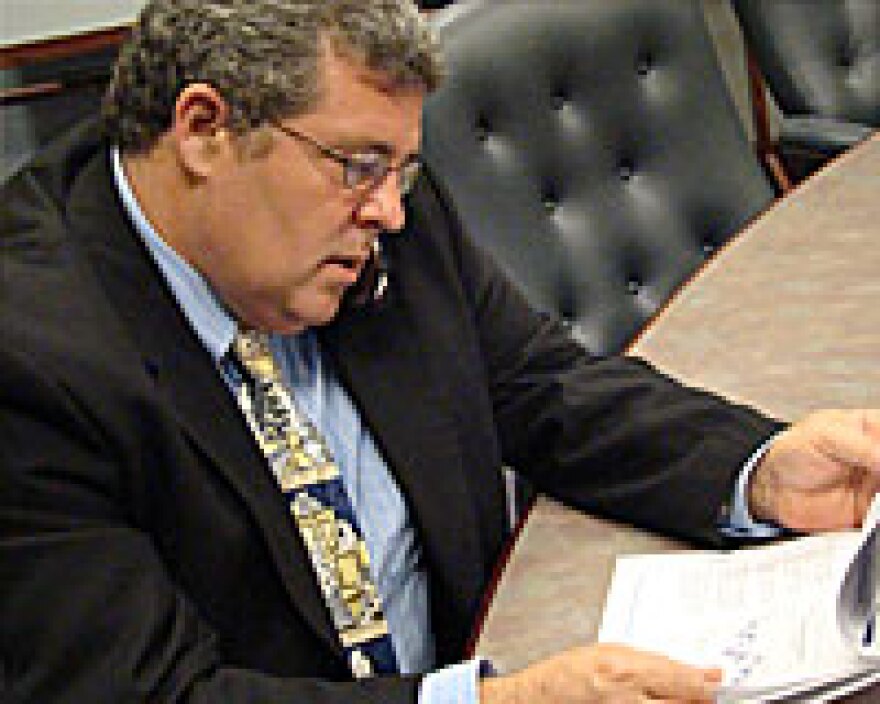A Chicago community organization is questioning why a House resolution is calling for a probe of how it uses state money. Lawmakers have asserted that the Kenwood Oakland Community Organization (KOCO) got money from the embattled, state-funded Neighborhood Recovery Initiative. But KOCO leaders say the group wasn’t part of that violence prevention program and they are “baffled” at the audit request.
Rep. Frank Mautino wants the auditor general to review KOCO and help to offer an explanation as to why the organization continues to get state grants after the city of Chicago has stopped giving KOCO money. The Democrat from Spring Valley is the chief sponsor of House Resolution 324, which asks the auditor to look into what state money KOCO received for the last four budget years, whether there was any oversight of the grants, what KOCO actually did with the dollars and whether the funds were used properly.
“As one of the organizations that received monies under the NRI … there’s a request for a performance audit on some of the programs,” says Mautino, who is co-chair of the Legislative Audit Commission. “One question in my mind is: our state dollars have been increasing there and the city of Chicago’s have been reduced.”
Except KOCO Executive Director J. Brian Malone says his group did not in fact get any money under NRI. He says that while his organization did work with another community organization — one that did get NRI funds — to serve as a summer jobs worksite, KOCO didn’t get any money from the partnership. Malone further questions why Rep. Christian Mitchell, a Chicago Democrat and co-sponsor of the resolution, is part of the call for the audit.
“There is no record of an executed contract between KOCO and NRI,” Malone says. “If KOCO didn’t receive this money, and this is the crux of their (Mautino’s and Mitchell’s) argument, it begs the question: What is Rep. Mitchell’s motivation?”
Mitchell praises, in general, the work community organizations do. But he says there has to be accountability.
“I am a steward of taxpayer dollars, Mitchell says. “When there’s a situation where … someone has lost their funding with the city of Chicago because of fiscal impropriety, when they’re providing those exact same services to the state to the tune of a million-plus dollars over half a decade, that it something that warrants investigation.”
KOCO is located on the south side of Chicago, in one of the communities targeted by the 2010 NRI program. NRI, with its $54 million budget, was to spread money among community organizations in an effort to combat violence in some of Chicago’s toughest neighborhoods. Opponents of then-Gov. Pat Quinn said it was first and foremost a political slush fund, meant to shore up his campaign for governor that year. Quinn shut the program down in 2012, but not before a string of alleged improprieties surfaced about the program. Then, in February 2014, an auditor general's report (PDF) offered a scathing rebuke of NRI, citing its “pervasive deficiencies.”
'I want to know why the city of Chicago is no longer funding their after school programs and we are.'
Mautino considers the audit request routine because of how controversial NRI became. He says most programs associated with NRI have been subject to audit, and most of them he visited.
“I want to know why the city of Chicago is no longer funding their after school programs and we are,” Mautino says.
Malone says his organization had for years been getting Community Development Block Grant funds from the city. KOCO received as much as $30,000 a year from that source, but the money dried up in 2012. Starting that year, the city turned down KOCO’s request for those grant dollars, and by fiscal year 2015, the organization stopped applying for it, Malone says. The state money continued.
In FY 13, according to state data, KOCO received $389,720 in state grants. In FY 14, it got $296,576. To date in FY 15, the organization has received $195,407. The money was for youth summer jobs, workforce development and a teen-mentoring program. Current funding for the teen program has been suspended as part of the governor’s Good Friday budget cuts.
Malone says he will cooperate with the audit, and adds that KOCO has passed other recent ones by the Illinois Department of Human Services. “There’s never been any evidence or indication of impropriety,” he says.






